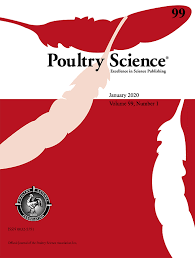Document type: Scientific article published in Animals
Authors: Eman S. Moustafa, Walaa F. Alsanie, Ahmed Gaber, Nancy N. Kamel, Abdulaziz A. Alaqil, Ahmed O. Abbas
Preview: The modern broiler industry faces huge challenges to keep high production quality and quantity, especially under environmental heat stress conditions. The negative effect of heat stress on broiler productivity is mediated by oxidative stress induction. The blue-green alga (Spirulina platensis) has many applications in poultry nutrition with the high levels of bioactive antioxidant compounds, which can alleviate the oxidative stress damage induced by high ambient temperature. The current study was designed to investigate the effects of dietary Spirulina inclusion at different levels on growth performance, redox status, carcass traits, meat quality, blood hematology, and metabolites profile of broilers subjected to cyclic heat stress. A total of 300 one-day-old Cobb-500 broiler chicks were recruited. Starting from day 21 to 42 of age, birds were randomly divided into five treatment groups with 6 replicates × 10 birds per group, where the first one was provided with the basal diet and reared under normal thermal conditions (23 ± 1 °C) to serve as a negative control. Meanwhile, the other four groups were exposed to cyclic heat stress (34 ± 1 °C for 8 h per day) and were fed a basal diet supplemented with Spirulina at a concentration of 0, 0.5, 1 or 1.5%. Spirulina supplementation to heat-stressed broilers was able to alleviate the negative impacts of heat stress on the final average daily gain, body weight and feed conversion ratio, with the best impact observed among the chickens fed 1% Spirulina. Hematological results indicate increasing hemoglobin and hematocrit levels with Spirulina supplementation compared to the non-supplemented stressed group. Further, Spirulina supplementation significantly influenced blood lipid metabolites marked by reduced serum cholesterol and low-density lipoprotein (LDL), and increased high-density lipoprotein (HDL) levels. The lipid peroxidation level was reduced (p < 0.05), while the antioxidant enzyme activity was increased with Spirulina supplementation to the heat-stressed group. Spirulina supplementation at 0.5 or 1% improved carcass dressing, breast and leg percentages. It can be concluded that dietary Spirulina supplementation at 0.5 or 1% to broiler reared under heat stress conditions can effectively improve broiler production performance and balance the redox status.






